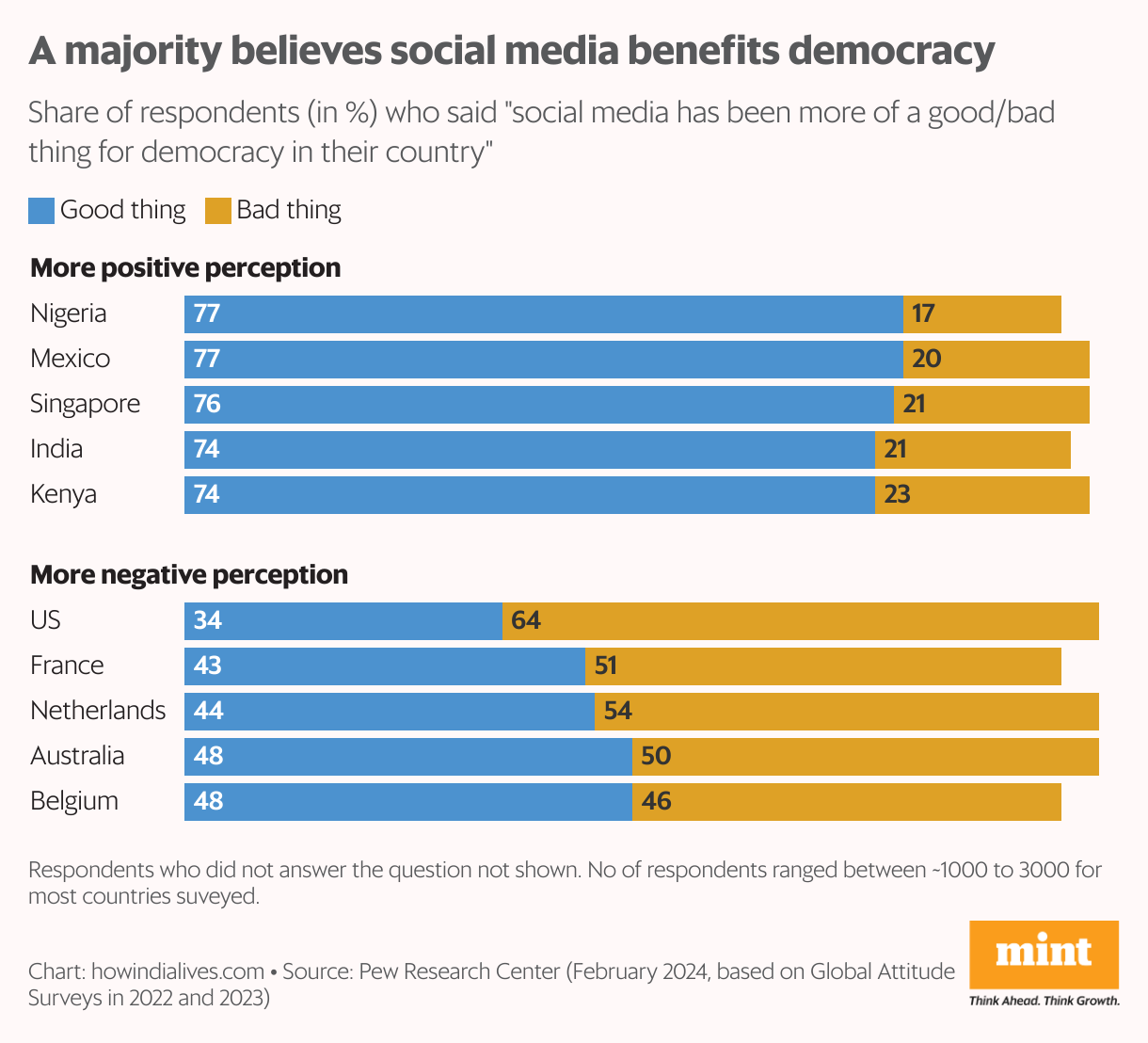In a similar vein, Alphabet, which owns YouTube—the second-largest social media platform—recently informed the European Union that it would not integrate fact-checking into Google search results or YouTube videos, despite new EU regulatory requirements. Meta’s decision, currently limited to the US, has sparked concerns among fact-checking organizations.
Read this | Mint Primer | Fact and fiction: (Un)importance of fact-checkers
The rise of digital media and social media influencers has driven an increase in fact-checking organizations. According to a Pew Research Center analysis, approximately 21% of US adults regularly get their news from influencers on social media. These influencers are primarily active on X, though many maintain a presence on other platforms as well.
The International Fact-Checking Network (IFCN) has 137 signatory organizations worldwide. Meta’s fact-checking programme, the largest of any platform, partners with over 90 fact-checking organizations and supports content in more than 60 languages. Between 2016 and 2022, Meta reported contributing over $100 million to its fact-checking initiatives. TikTok, by comparison, has partnered with around 15 organizations.
Despite these partnerships, funding and financial sustainability remain the primary concerns for fact-checking organizations, according to the IFCN’s State of Fact-Checkers 2023 report. Meta’s decision to end its programme in the US is expected to further strain these organizations, prompting them to seek alternative funding sources. These include grants—which surpassed Meta’s contributions as the largest funding source in 2023—as well as training programmes and user donations.
Global risk
Although Meta’s decision is currently limited to the US, its platforms, along with social media at large, are increasingly influential on a global scale. About two-thirds of the world’s population is online, with roughly 5 billion users engaging with social media. In 20 of the 27 countries surveyed by the Pew Research Center, a majority of respondents believe social media has benefited democracy in their respective nations.
However, these platforms have also become major sources of misinformation. In its Global Risks Report, the World Economic Forum (WEF) highlighted misinformation and disinformation as critical global risks, particularly over the next two years. “It is a leading mechanism for foreign entities to affect voter intentions; it can sow doubt among the general public worldwide about what is happening in conflict zones; or it can be used to tarnish the image of products or services from another country,” it said.
Read this | Do we need to fact-check the fact-checker?
As such, fact-checking will be essential in mitigating these risks.
Spotting fake news
According to Oxford University’s Reuters Institute Digital News Report 2024, 59% of survey participants expressed concern about distinguishing between real and fake content on the internet. This concern has grown by 3 percentage points since 2023. Approximately a quarter of respondents said they struggled to identify trustworthy news on X.
Since 2021, X has attempted to address this issue through its community notes feature (formerly Birdwatch). This tool allows registered users to anonymously add fact-checks, contextual information, or missing details to posts. Some studies suggest it has been effective in highlighting inaccuracies, reducing retweets, and even leading to the deletion of original tweets.
However, other studies have noted that not all misinformation is flagged, and even when it is, the notes can take time to appear, allowing the misinformation to spread in the interim.
Double-edged sword
Despite its limitations, the core purpose of community notes—identifying and correcting false information—has generally been recognized as an effective strategy for combating misinformation. A meta-analysis of 43 experiments from 18 peer-reviewed studies, conducted by the International Panel on the Information Environment, found that content labelling and the publication of corrective information were among the most effective methods.
While artificial intelligence (AI) has often been criticized for contributing to the spread of misinformation, it is also playing a supportive role in fact-checking.
Also read | The trouble with government in fact checking
According to IFCN, 55% of fact-checking organizations surveyed use generative AI to assist with early research, and 47% are in the process of finalizing or developing editorial guidelines for AI. In a test by the Reuters Institute on AI chatbots’ performance regarding the 2024 UK general elections, ChatGPT-4.0 provided accurate answers 78% of the time, while Perplexity.ai did so 83% of the time.
As AI continues to improve, it could become a powerful tool for fact-checkers, with or without the involvement of Meta.
www.howindialives.com is a database and search engine for public data.
social media,fact checking on social media,community notes,Meta,YouTube,social media platforms,X,Twitter,fact-checking organizations,digital media,social media influencers,International Fact-Checking Network,Meta’s fact-checking programme,AI,GenAI,fact checkers,democracy,real vs fake content,spread of misinformation
#social #media #giants #moving #factchecking




